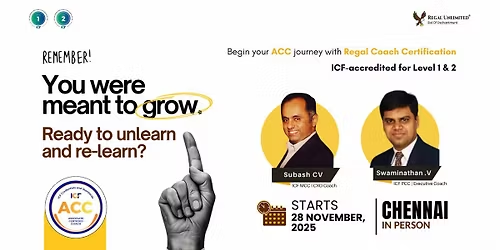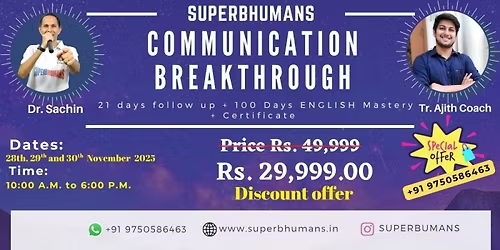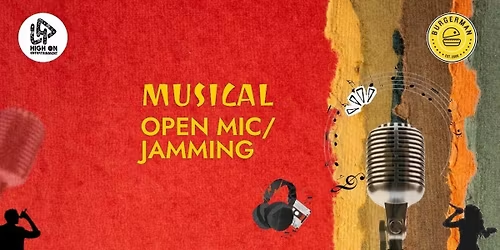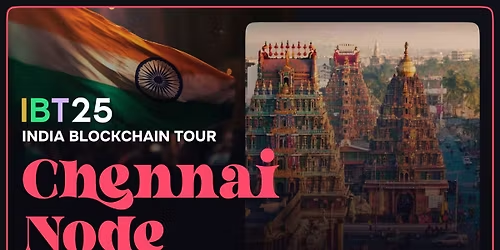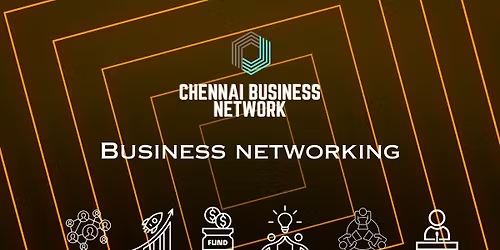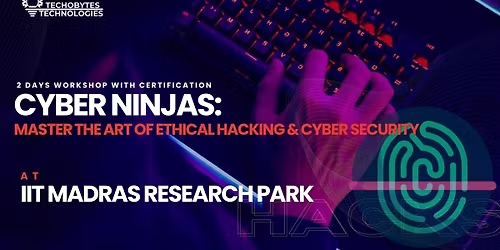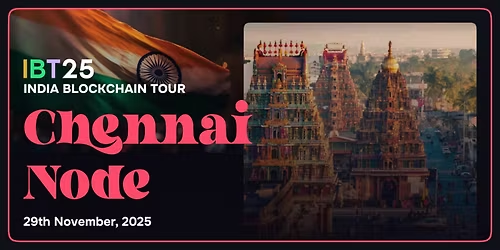Next Gen Robotics (AI-IOT)
Schedule
Sat, 29 Nov, 2025 at 04:30 am to Sun, 30 Nov, 2025 at 11:30 am
UTC+00:00Location
IIT Madras Research Park | Chennai, TN

Advertisement
Day 1First Half: Foundations in Next-Gen Robotics & AI● Workshop Overview & Objectives● Introduce the vision: building a robotics platform that leverages AI-powered computer visionfor intelligent decision-making.● Outline the key components: robotics mechanics, electronics integration, AI using YOLO, andMQTT messaging.● Robotics & Electronics Essentials● Core Concepts: Brief review of the essential robotics system (e.g., robotic arm or mobilerobot) and the role of embedded electronics.● Power & Motor Control: Highlight the key points of integrating BLDC motors (or otheractuators) and electronic speed controllers.● Introduction to AI & Computer Vision● Overview of YOLO: Explain the “You Only Look Once” object detection algorithm—itsbenefits for real-time applications and relevance in robotics.● ESP Cam as a Vision Sensor: Introduce the ESP Cam as an affordable, lightweight solutionfor capturing live video and running basic vision tasks.● Fundamentals of MQTT Communication● MQTT Basics: Outline the publisher–subscriber model and its suitability for lightweight,real-time messaging between sensors (ESP Cam) and the robot’s control unit.● Role in Robotics: Discuss how MQTT can facilitate communication for AI-based decision-making and control.Second Half: Hardware Assembly & Initial Setup● Robotics Platform Assembly● Essential Mechanical Setup: Assemble the key structural components of the roboticsplatform with an emphasis on mounting locations for sensors and actuators.● Minimalist Approach: Focus only on the critical structural elements needed to support theESP Cam and motion components.● Electronics Integration● ESP Cam Installation: Mount and wire the ESP Cam on the robotics platform ensuring anoptimal field of view.● Basic Wiring & Power Distribution: Connect the ESP Cam and core motor controllers to thepower source, emphasising safe and reliable wiring.● Initial Programming & MQTT Setup● ESP Cam Basics: Upload simple code to the ESP Cam for image capture and streaming.● MQTT Connectivity: Configure the ESP Cam (or an associated microcontroller) to publishbasic status or image metadata to an MQTT broker.● Demonstration & Troubleshooting: Run initial tests to verify that the ESP Cam streams dataand sends MQTT messages successfully.Day 2First Half: Advanced AI Integration with YOLO on ESP Cam● Deep Dive into YOLO● Understanding YOLO: Explain the workings of YOLO (or Tiny YOLO for constraineddevices), including network architecture, detection thresholds, and bounding box outputs.● Adaptations for Embedded Systems: Discuss considerations when deploying YOLO onresource-constrained devices like the ESP Cam (or interfacing with a nearby processing unit).● Programming AI on the ESP Cam● Integrating YOLO: Walk through the process of setting up a YOLO model (or connecting to aremote server running YOLO) to process live video from the ESP Cam.● Real-Time Object Detection: Develop code that captures images, runs YOLO for objectdetection, and identifies key objects in the scene.● MQTT-Driven AI Messaging● Data Packaging: Show how to package YOLO detection results (e.g., object type,confidence, position) into MQTT messages.● Publishing Results: Configure the ESP Cam or its companion processor to publish detectionmessages to the MQTT broker.● Hands-On Coding: Participants update and test their code to ensure that AI-based detectionsare transmitted in real time via MQTT.Second Half: System Integration, Testing & Optimisation● Integrating AI with Robotic Control● End-to-End Communication: Connect the MQTT messages from the ESP Cam to the mainrobotics control unit (e.g., a microcontroller or onboard computer) that will act on the detectedobjects.● Decision-Making Logic: Implement basic logic so that the robot responds to AI detections(for example, altering its path or activating specific behaviors when an object is detected).● Testing● Live Demonstration: Run the robotics platform in a controlled environment where the ESPCam performs object detection using YOLO, and MQTT messages drive robotic responses.● Performance Evaluation: Evaluate response times, detection accuracy, and messagingreliability.● Parameter Tuning: Adjust YOLO thresholds, MQTT message frequencies, and control logicbased on testing feedback.● Wrap-Up & Future Directions● Final Demonstration: Present a full demonstration of the integrated system whereAI-powered object detection informs robotic actions in real time.● Discussion & Q&A: Open discussion on challenges, solutions, and potentialapplications—ranging from automated navigation to swarm robotics.● Resources & Next Steps: Provide pointers for further exploration in embedded AI, advancedMQTT integrations, and scaling up next-gen robotics solutions. Lunch is included for 2 Days during the workshop.CertificationAll participants will receive a globally recognised hard-copy Certificate of Participation.Eligibility:Open to All, Final Year Students, and learners from any stream:B.Tech, B.E, M.B.B.S, BCA, MCA, MS, MD, B.Sc IT, M.Sc IT, Biomedical, Bio-Technology, BBA, MBA, B.A, hobbyists and more.
Advertisement
Where is it happening?
IIT Madras Research Park, Chennai, IndiaEvent Location & Nearby Stays:
Tickets
INR 2800
Know what’s Happening Next — before everyone else does.
